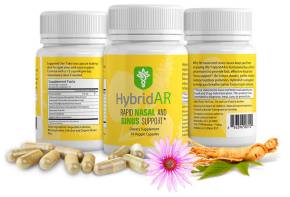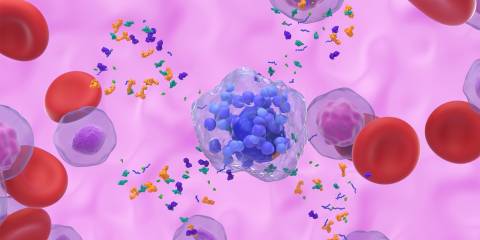As a practicing pharmacist for over 20 years, every spring and fall, I get asked many times, what is the best medication for seasonal allergies? To which I reply, none of them. No medication will ever truly help your seasonal allergies.
You are going about it all wrong and here is why.
Histamine is not the issue.
Contrary to popular belief, seasonal allergies are not a histamine problem. I know, hard to believe as the options that line the pharmacy shelves are all labels “anti-histamine”.
We have been conditioned to believe that by controlling histamine (with pills, creams, liquids) we are treating the problem. But in reality, we are only scratching the surface.
The Core Reason for Seasonal Allergies
While histamine is certainly a component of seasonal allergies, it is just a small part of the real issue. Your Immune system.
Seasonal allergies to pollen, dust, mold, pet dander and many others is caused by your immune system over-reacting to something harmless.
Reacting in the same way it would to a virus or bacteria recruiting additional immune cells that result in inflammation.
Designing the Ideal Allergy Remedy
The ideal natural allergy remedy would involve a combination of herbs that address histamine and balance your immune system.
All too often, I find that many natural brands overly focus on controlling histamine with combinations of ingredients such vitamin C, bromelain, stinging nettle, quercetin and many more. Worse, many brands, when you look at their labels closely, are almost identical formulas.
These formulas often miss the mark on how to truly help people with allergies.
Immune Support is the Key
The true problem with seasonal allergies is not histamine as we have been trained to think. It is our immune system.
Much like how our body’s immune system responds to viruses, it sometimes undergoes the same response to allergens such as pollen, pet dander, mold and more. For people with seasonal allergies, your immune system has identified it as a foreign entity that must be attacked and removed.
This immune response is a natural reaction and favorable. But sometimes the immune system overreacts and creates unnecessary inflammation by releasing too many inflammatory mediators and recruiting excessive help from the immune system.
The secret to seasonal allergy control is in balancing the immune response. Balancing the immune response in the right way can make all the difference.
Top 5 Herbs for Immune Support for Seasonal Allergies
-
Butterbur
Acts by stabilizing an important immune cell called the mast cell.
Mast cells contain a lot of inflammatory medications such as interleukins, prostaglandins, cytokines and histamine.
Butterbur standardized to petasins has been shown in clinical studies to be very effective at stabilizing the cell membrane and limiting the release of these highly inflammatory chemicals.
-
Apigenin
Often overlooked but so important in the moderation of the immune response for allergies.
This ingredient is found in high concentrations in parsley and celery. Its specific action is balancing T helper cells.
T helper cells are divided between TH1 and Th2. An imbalance in T helper cells can lead to worse allergy symptoms.
Apigenin restores this balance in your body.
-
Andrographis
This ayurvedic herb has a long history of showing benefit for immune support.
Andrographis contains andrographolide which helps support inflammation and has mild astringent properties. Highly standardized andrographis promotes healthy breathing pathways quickly.
-
Rosmarinic Acid
Derived from the rosemary plant, this ingredient when used in its purest form can have a significant impact on histamine.
Rosmarinic acid is best used in combination with other herbs when using it for seasonal allergies.
-
Quercetin Dihydrate
Very beneficial for controlling both histamine formation and release. It also has some benefits for stabilizing mast cells.
Quercetin alone is not very effective for seasonal allergies but when paired with other immune support ingredients, it can be very effective.
It is important to know that not all quercetin forms are equal in absorption. Quercetin dihydrate has very good absorption characteristics (up to 80%) in the GI system compared to traditional quercetin which is only 5% absorbed into the body.






